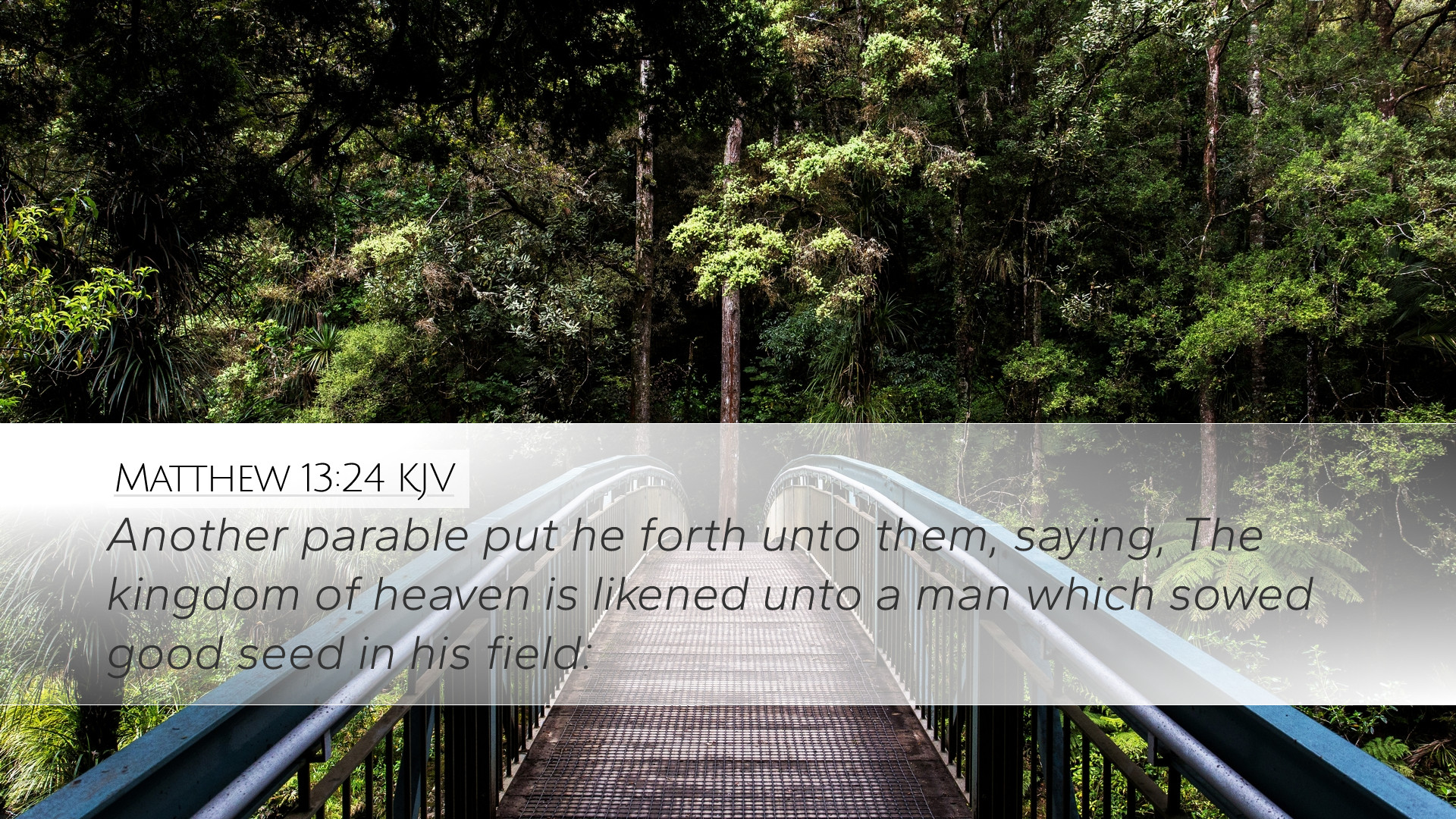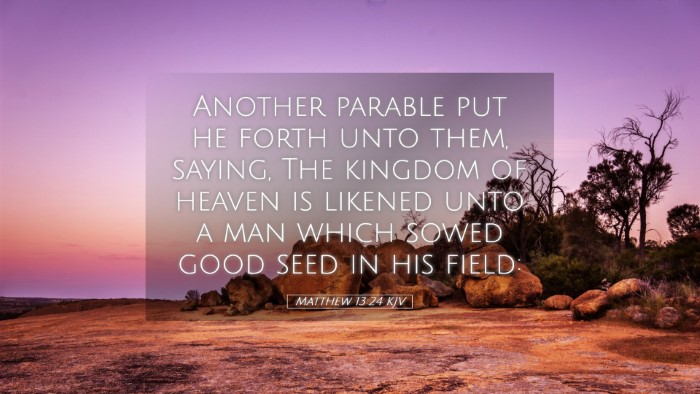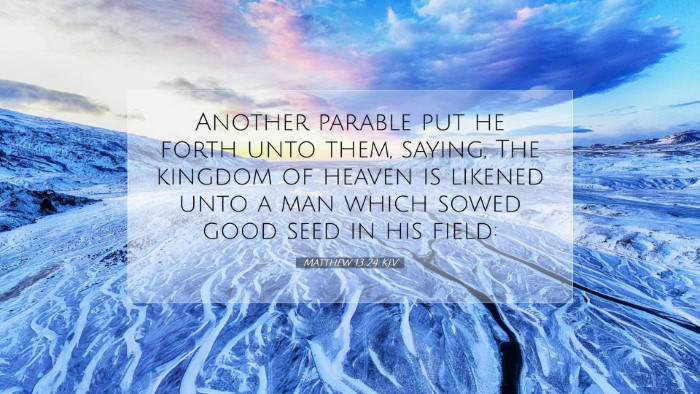Commentary on Matthew 13:24
Verse: "Another parable put he forth unto them, saying, The kingdom of heaven is likened unto a man which sowed good seed in his field."
Introduction
The parable of the wheat and the tares, initiated in Matthew 13:24, is a profound teaching of Jesus concerning the nature of the kingdom of heaven. This commentary draws upon the insights of esteemed theologians such as Matthew Henry, Albert Barnes, and Adam Clarke to elucidate the spiritual and practical applications of this passage. Understanding the context and the allegorical implications is essential for pastors, students, and scholars alike.
Contextual Analysis
Matthew 13 is a pivotal chapter in the Gospel, rich with parables that unveil the mysteries of the Kingdom of God. This particular parable signifies the coexistence of good and evil within the age of the church. It is important to note that this parable is presented immediately after the parable of the sower, linking the two by emphasizing different aspects of the seed's growth and challenges.
The Sower and the Seed
Each parable in this chapter offers a unique perspective on the same truth – the dynamics of God's kingdom and the human response to it. As Adam Clarke elucidates, the seed in this passage symbolizes the gospel, pure and potent, while the "man" represents Christ, the Lord of the harvest.
The Good Seed in the Field
Basic Understanding: The man who sows good seed signifies the divine intervention in the world, establishing his kingdom through the faithful preaching of the gospel.
Matthew Henry emphasizes the significance of the 'good seed' as those who are truly saved and regenerate, highlighting their role as children in the kingdom of God.
The Field as the World
The field itself is understood as the world, which is a prominent theme in biblical teachings. Barnes provides clarity in explaining the metaphor, noting that the field represents the community wherein the believers reside amidst the influences of both righteousness and wickedness.
Understanding the Tares
Definition: Tares, or weeds, represent false believers and the agents of evil that infiltrate the church. This duality speaks to the reality of struggles faced by Christians in a corrupted world.
The Character of the Enemy
Henry notes the cunning of the enemy, showing that the enemy (the devil) works in unfathomable ways to undermine God’s planting. The act of sowing tares amongst wheat reflects Satan's deceptive nature and his relentless pursuit to thwart God's purposes.
The Timing of Growth
One of the significant points to draw from this parable is the aspect of growth and maturation. In the early stages, it can be challenging to distinguish between the good seed and the tares. Clarke states that both the wheat and the tares grow together until the harvest, symbolizing the judgment. This reflects the patience required in spiritual discernment.
The Harvest as the End of the Age
The notion of harvest represents the final judgment when the true believers will be separated from those who have merely affected appearances. Barnes articulates that this harvest is not merely a physical gathering but a supernatural event where God's justice is manifest.
Theological Implications
This parable showcases crucial theological truths about the kingdom of God:
- Grace and Judgement: The coexistence of good and evil emphasizes God's grace allowing time for repentance.
- Human Responsibility: Believers are called to grow and bear fruit while being watchful against the deception of evil.
- Hope in Assurance: The certainty of a divine reckoning provides hope amid trials and temptations.
Practical Applications
For contemporary believers, this parable holds significant insights:
- Prayer and Vigilance: The need for constant prayer and awareness of the spiritual battles at work.
- Community Engagement: Working within the community to promote the kingdom of God while recognizing the presence of opposition.
- Endurance: Encouragement to remain steadfast in faith, knowing that God's justice will prevail in His timing.
Conclusion
Matthew 13:24 offers profound insights into the nature of the kingdom of heaven, encouraging believers to engage with both the blessings and challenges that arise within their spiritual journey. The messages delivered through this parable resonate deeply, underscoring the urgency for vigilance, the hope of divine justice, and the reminder that the ultimate separation of good and evil lies in the hands of God.


